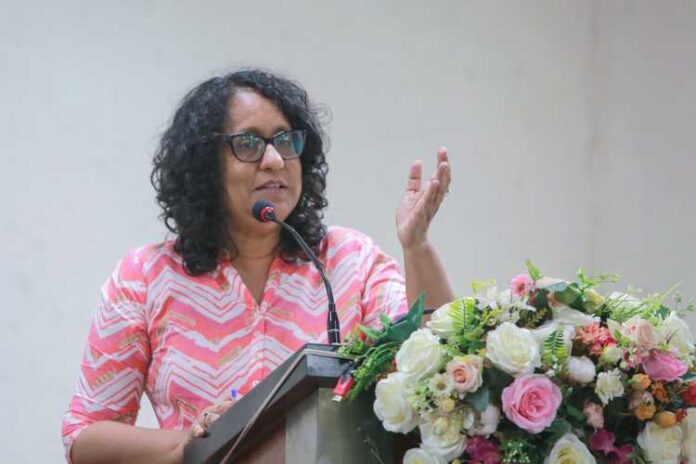Education is a process of sharing collective knowledge and holds the power to unite people politically, socially, and economically, Prime Minister Dr. Harini Amarasuriya said yesterday.
She made these remarks while addressing a conference in Colombo focused on strengthening cooperation among countries in Asia, the Middle East, and the Pacific on the role of education in the global Green Transition.
The conference is held under the umbrella of the Erasmus+ Programme, funded by the European Union, which is one of the world’s leading initiatives for international cooperation in education, training, youth, and sports. The programme supports mobility, intercultural exchange, capacity development, policy advancement, and provides wide-ranging opportunities in higher education, vocational training, youth development, and institutional partnerships in Sri Lanka. The event will continue until November 20.
Expanding on Sri Lanka’s education landscape, Prime Minister Amarasuriya said that while the country has inherited a high literacy rate from its post-colonial education system, the current model has become overly focused on individual achievement.
She noted that excessive competition and examination pressure have distorted the true purpose of education.
“Education should not be a process aimed solely at individual achievement. What we strive for today is to move away from this model and restore the true purpose of education—sharing collective knowledge and strengthening transformative learning,” the Prime Minister said.
She emphasised that education’s transformative power is often overlooked, stressing that it goes beyond personal success and plays a critical role in uniting societies and shaping shared expectations.
As Sri Lanka undertakes new education reforms, she highlighted the importance of collaborative learning, fostering responsibility toward others, and building an understanding of global and environmental challenges.
Dr. Amarasuriya also pointed out the rise of unscientific methods and misinformation, saying that the need for a strong and transformative education system is more vital than ever. Such an approach, she added, would help ease pressures within the university system and encourage meaningful dialogue and cooperation.
“Transforming our education system from a cage of competition into a free space of collaboration and responsible knowledge-sharing is one of the fundamental challenges Sri Lanka must overcome for its future,” she said.
The event was attended by the Ambassador of the European Union to Sri Lanka, Carmen Moreno, Secretary to the Ministry of Education, Higher Education and Vocational Training Nalaka Kaluwewa, as well as regional representatives and senior government officials.
